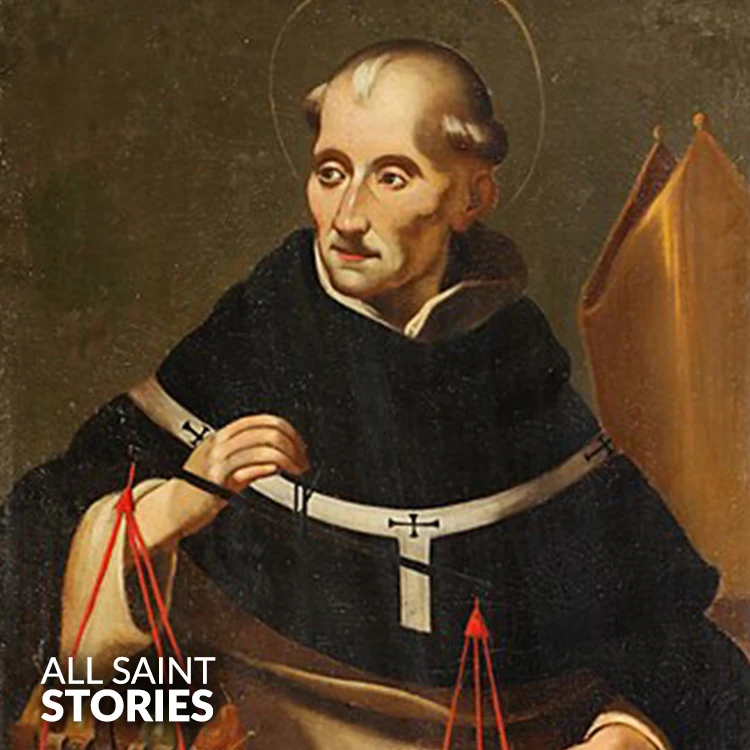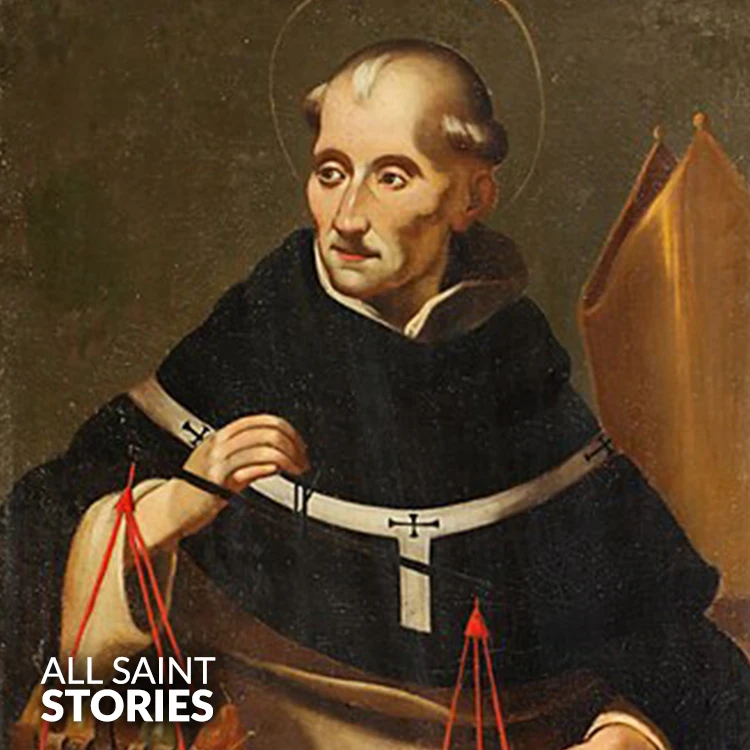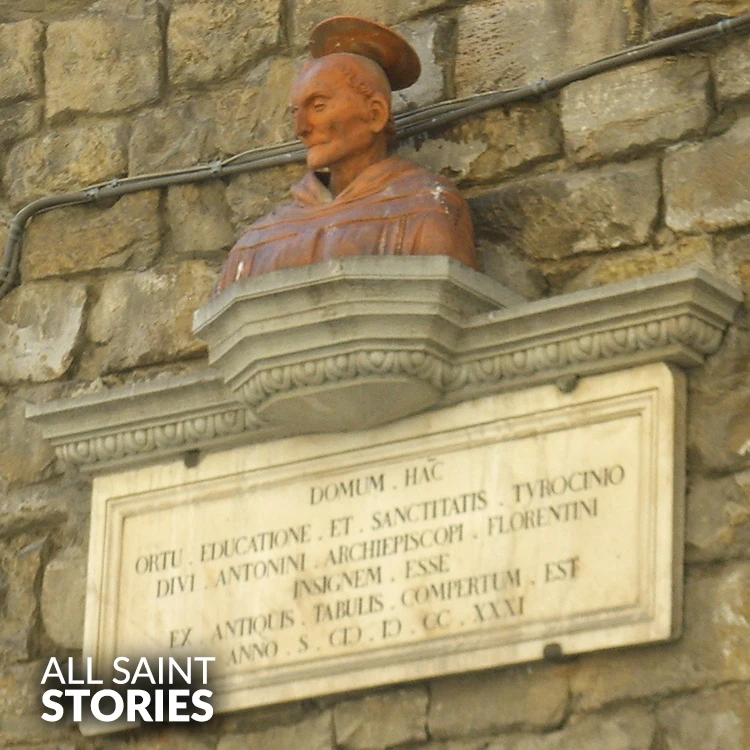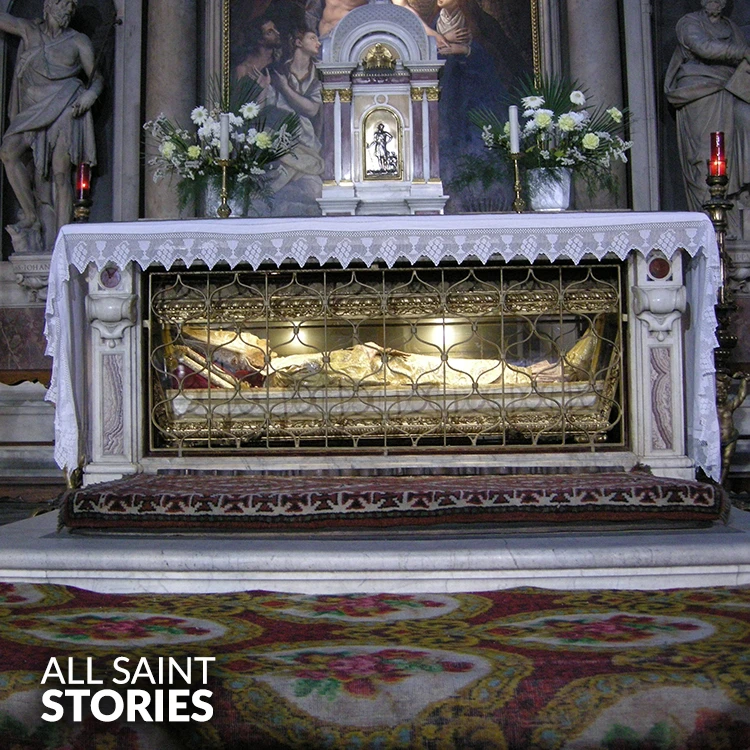Saint Antoninus, faithful servant of God, You devoted your life to the service of others with wisdom, humility, and compassion. Intercede for us, that we may live with a heart full of charity and a spirit of justice. Guide us to follow Christ’s example in all our dealings, and help us to grow in holiness and love. Through your intercession, may we be strengthened in faith, and may God's will be done in our lives. Amen.
ST. ANTONINUS OF FLORENCE
ST. ANTONINUS OF FLORENCE

St. Antoninus of Florence, a Dominican friar, was renowned for his holiness, wisdom, and pastoral care. He became the Archbishop of Florence and was deeply involved in reforms that benefited both the Church and the people. His writings, particularly his works on moral theology and pastoral care, have had a lasting influence. He was canonized in 1523 due to his exemplary life and contributions to the Church.
St. Antoninus of Florence was born in 1389 in the town of Florence, Italy. From a young age, he exhibited a profound sense of devotion to God. His early education was marked by his sharp intellect and strong desire to learn, which led him to join the Dominican Order at the age of 17. As a member of the Dominicans, he devoted himself to prayer, study, and serving the poor.
Antoninus’s theological education was exceptional. He became known for his deep understanding of Christian doctrine and for his insightful teachings on moral theology. His knowledge was vast, and he was not only skilled in theological study but also possessed a pastoral heart. This combination of intellect and compassion made him a powerful figure within the church, earning him respect from both his peers and the people he served.
In 1439, he was appointed the Archbishop of Florence. As a bishop, Antoninus was dedicated to improving the lives of his flock. His leadership was marked by a commitment to reform and social justice. He worked to ensure the moral integrity of both the clergy and laity, encouraging a life of simplicity, charity, and devotion. He also helped bring about important liturgical reforms that had a lasting impact on the Church.
One of Antoninus's most significant contributions to the Church was his emphasis on pastoral care. He believed that the spiritual well-being of the faithful was paramount, and he established numerous charitable institutions, including hospitals and orphanages, to care for the most vulnerable members of society. He also wrote extensively on the role of the priest in offering guidance to the laity, and his writings on the duties of a pastor remain influential in the Church to this day.
St. Antoninus was deeply committed to poverty, humility, and prayer. He practiced strict self-discipline and encouraged those around him to do the same. His lifestyle was simple, and he lived in a small cell attached to the cathedral. He spent his time in prayer and study, and he also took part in preaching, offering wisdom to the people of Florence on topics of virtue, justice, and devotion.
His influence in Florence extended beyond his role as Archbishop. He was involved in social and political issues, advocating for the poor and working to maintain peace in the city. He was also a great mediator and played an important role in negotiating peace during times of civil unrest in Florence.
Antoninus's humility and love for the poor earned him the affection of the people, and his works were widely respected. He wrote several books during his lifetime, including a comprehensive work on moral theology, a guide for confessors, and a book on how to live a devout Christian life. His writings provided essential guidance for both priests and laypeople, helping them grow in holiness and virtue.
St. Antoninus was known for his deep devotion to the Virgin Mary, and he was a strong proponent of the Rosary. His devotion to the Blessed Mother inspired many in the city of Florence and beyond. He encouraged people to turn to Mary for comfort, protection, and guidance.
St. Antoninus passed away on May 2, 1459, after a life filled with service to God and humanity. His death was mourned by the entire city of Florence, and his influence continued to be felt long after his passing. In recognition of his sanctity and his contributions to the Church, St. Antoninus was canonized by Pope Adrian VI in 1523.
His canonization was based on his remarkable life of holiness, his dedication to the pastoral care of his flock, and his lasting contributions to theology and social reform. Today, St. Antoninus of Florence is revered as a model of pastoral care and humility, and his life continues to inspire those who serve in the Church.
Video Not Found
The information on this website is compiled from various trusted sources. While we aim for accuracy, some details may be incomplete or contain discrepancies.
If you notice any errors or have additional information about this saint, please use the form on the left to share your suggestions. Your input helps us improve and maintain reliable content for everyone.
All submissions are reviewed carefully, and your personal details will remain confidential. Thank you for contributing to the accuracy and value of this resource.
Credits & Acknowledgments
- Anudina Visudhar (Malayalam) – Life of Saints for Everyday
by Msgr. Thomas Moothedan, M.A., D.D. - Saint Companions for Each Day
by A. J. M. Mausolfe & J. K. Mausolfe - US Catholic (Faith in Real Life) – Informational articles
- Wikipedia – General reference content and images
- Anastpaul.com – Saint images and reflections
- Pravachaka Sabdam (Malayalam) – Saint-related content and insights
We sincerely thank these authors and platforms for their valuable contributions. If we have unintentionally missed any attribution, please notify us, and we will make the correction promptly.
If you have any suggestion about ST. ANTONINUS OF FLORENCE
Your suggestion will help improve the information about this saint. Your details will not be disclosed anywhere.
© 2026 Copyright @ www.allsaintstories.com





 English
English
 Italian
Italian
 French
French
 Spanish
Spanish
 Malayalam
Malayalam
 Russian
Russian
 Korean
Korean
 Sinhala
Sinhala
 Japanese
Japanese
 Arabic
Arabic
 Portuguese
Portuguese
 Bantu
Bantu
 Greek
Greek
 German
German
 Dutch
Dutch
 Filipino
Filipino